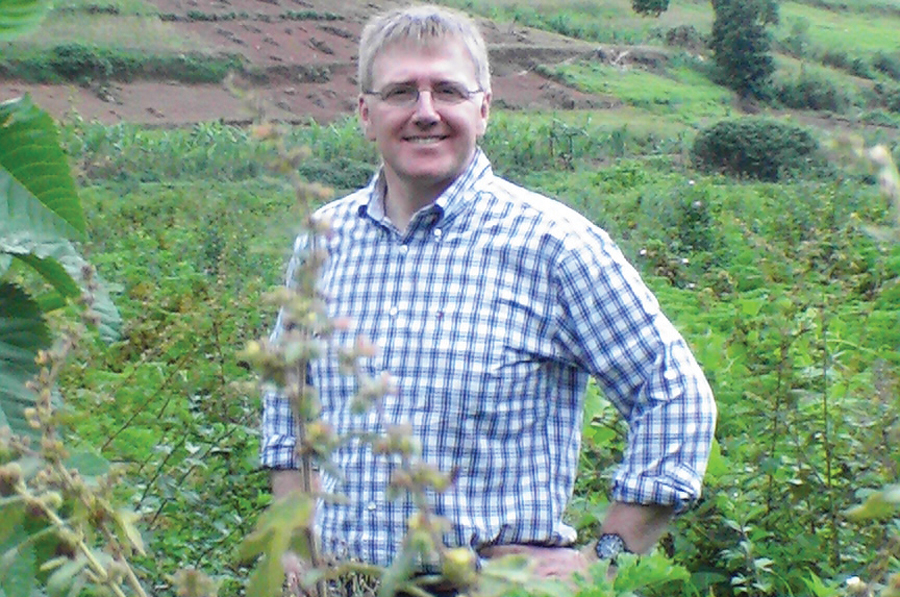An encounter with a Rwandan fleeing the genocide in his country began the unlikely business partnership of a Scottish seafood business with a Rwandan farming community.
Dennis Overton’s business, Aquascot, revolves around the farming of fish in the North Atlantic and salmon processing in the Highlands of Scotland.
Nicholas Hitimana was studying a doctorate in agriculture at Edinburgh University and had knowledge of Rwandan oil plant production. The two befriended each other and compared thoughts on their respective agricultural worlds.
Overton at once saw some potential and realized that the farming of fish and the farming of plant oils were not that different. “Farming at sea or on land requires the same management and skills,” says Overton. Ikirezi Natural Products was established as a community-interest company in Rwanda in 2005 and specializes in the growing of oil-bearing plants such as geranium, lemongrass and eucalyptus, all of which have good selling potential on the international market.
The aim of Ikirezi is to become a leading supplier of essential oils and to maximize profits to the small farmers involved in the growing, leading to a transformation of these largely cashless communities. The company mobilizes and trains farmers, mainly widows and orphans, and then buys the harvested material to produce and market the oil. Through four farming associations and cooperatives, over 500 farmers are involved.
“We’re into year six now and almost at net profitability,” says Overton. “Not bad when you consider that we’re doing this in an emerging economy which rates in the bottom 30% on the global economic scale.” His biggest concern is how everyone can work together to save the earth’s biosphere and he considers a reliance on world governments to do this job as shaky at best. And there are plenty of challenges too in engaging a developing economy, as Overton discovered.
“In Rwanda subsistence farming is the norm with low education levels making the communication of farming skills difficult. A key to resolving this was to work with Rwandan locals to implement the training. We needed to grow the business in an inclusive manner while still recognizing the needs of the farmers.”
These needs included the need to eat, so the small farms of between one and two hectares are shared between food and oil crops. Despite these small plots and the diversification of crops, the farmers are earning up to three times more per hectare than if the land was used only for food crops. “Long-term business sustainability and a deeper understanding of true profits are key to this business model,” says Overton.
“These farmers now have more choices. Kids go to school and people are signing up for the government health insurance program for the first time. People are now earning more than the national average of US$270 a year and cash has been introduced into some communities for the first time. It’s amazing to see this happening and how it is changing lives.”
Overton’s scheme has seen the Ikirezi farmers develop a clear competitive advantage over other farmers and become innovators, yet ironically, he has benefitted too. “I’m better at what I do in Scotland because of my work in Africa,” he says.




































